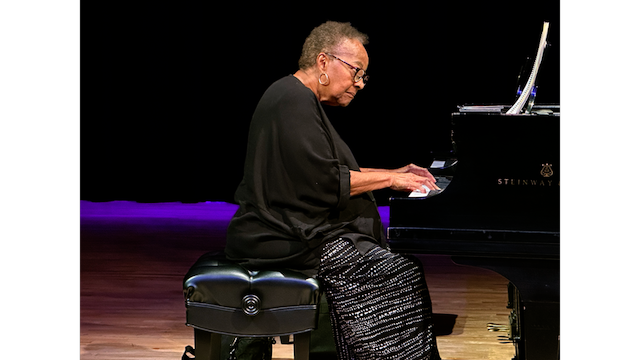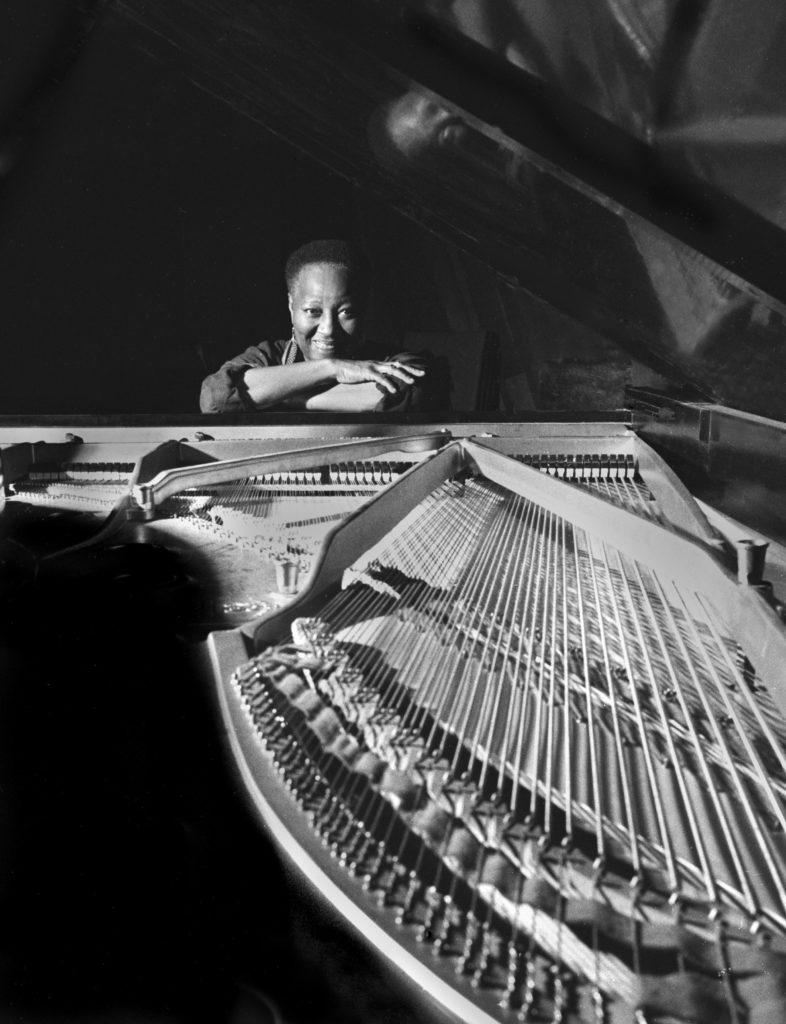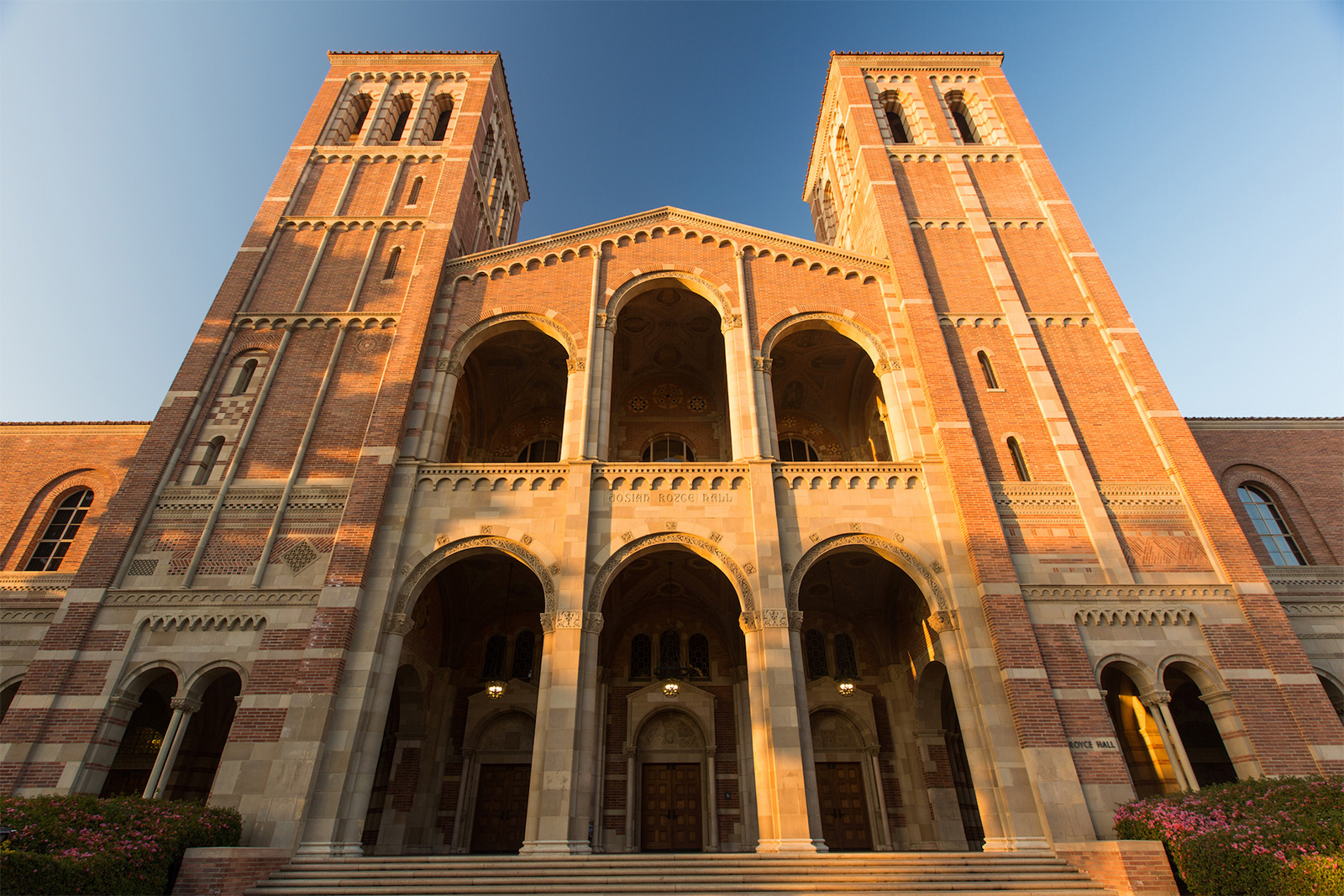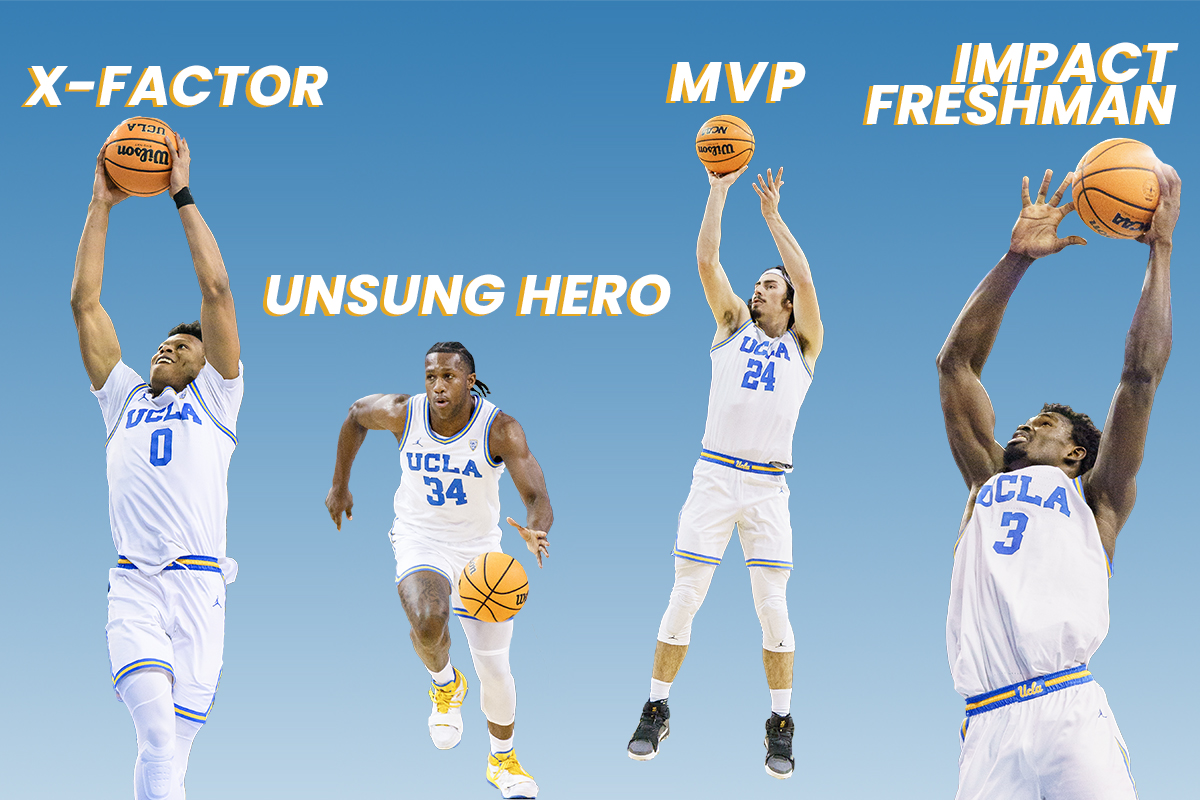Q&A: Pianist Althea Waites on spotlighting underrepresented composers

Althea Waites sits as she plays the piano. Tomorrow evening, Piano Spheres’ Leonard Stein Resident Artist will perform works by underrepresented composers at The Nimoy. (Courtesy of David Witham)
“Momentum: Time and Space”
Althea Waites
The Nimoy
Jan. 16
8 p.m.
By Leydi Cris Cobo Cordon
Jan. 15, 2024 12:05 p.m.
This post was updated Jan. 15 at 7:42 p.m.
The weight of history cannot stop Althea Waites’ momentum.
Taking place tomorrow evening at The Nimoy, the acclaimed pianist’s “Momentum: Time and Space” performance will include works from underrepresented Black composers, including recently discovered pieces from Margaret Bonds. The event is a partnership between UCLA’s Center for the Art of Performance and Piano Spheres, where Waites currently serves as the Leonard Stein Resident Artist following decades of teaching in higher education.
As the clock counts down, Waites spoke with the Daily Bruin’s Leydi Cris Cobo Cordon about rectifying the musical timeline.
This interview has been edited for length and clarity.

Daily Bruin: From collaborations with Langston Hughes to composing arrangements of spirituals, Bonds’ body of work is interconnected with its surrounding time period. How does the broader historical context of certain pieces influence your process?
Althea Waites: It’s been important in terms of the work that I do because Margaret Bonds was a pioneer like Florence Price, (who) was another African American composer and emerged at a time when Black women were simply thought of as being homemakers and raising children, but certainly not branching out and doing anything in terms of music. She was a trailblazer, and they were very close friends.
The other thing is that Margaret Bonds lived in Los Angeles. When she died, there were all kinds of scores in her apartment, and the landlord was about to throw them out into a trash bin behind the building where she lived. Her daughter and husband flew in from New York when they received word that she had passed away, and they retrieved a lot of those scores. Had that not happened, I would not have known that any of these other pieces existed.
Michael Cooper, who is a musicologist on the faculty at Southwestern University, gave me copies of the scores. So I feel like I am part of that chain, if you will, because he’s writing a book on Margaret Bonds, so all of these things are kind of coalescing into something that is really quite exciting for me.
[Related: Alarm Will Sound takes The Nimoy on orchestral journey of self-discovery]
DB: Considering these are recently discovered pieces, how does it feel to bring them to life through performance?
AW: It’s really exciting. I have to go back again to my own history, because I was the first pianist to record Florence Price’s sonata. Once again, a friend of mine gave me a copy of the piece. He said, “Well, I really think you need to do this.” So I sat down with the music and played through a couple of things and I thought, “What a revelation.” When I got this music, I felt a sense of obligation.
Throughout my entire life, I’ve been politically active. I am not always marching with a sign, but I try to create inroads for conversation wherever I go. We (the arts and artists) are major players in creating areas where people can actually say, “We’ve had enough conflict, we’ve had enough war. Let’s do something about it.” So I just felt, “Wow, I need to do this.”
I have not given up playing any of the great composers in the Western canon. It is still important in my life, but I also include these other works now because it’s really important that people know that Bach, Beethoven and Brahms – all of these great composers – were significant for their time and their music is timeless, but so is the work of these underrepresented composers. It’s just that we don’t know anything about them because their voices were silenced for many, many years. We have to do our part to change that.
[Related: Hilá Plitmann, UCLA music students debut original compositions at Schoenberg Hall]
DB: What steps can college students take to change the music industry or do their part in seeking out underrepresented voices?
AW: College students can do a lot. They are in a unique position. Students need to talk to their professors. They need to say, “Why don’t we have conversations about the role of these composers and music in the cultural landscape as it is today?” I don’t know that it necessarily means they have to march, although that is important too, but they need to keep pushing for that. You have to keep up the momentum. You have to keep saying, “This is important.” Engage the teachers in promoting and talking about it, especially in classes related to music.
They can also create groups where they can engage other students on the campus to say, “If you’re interested in doing this, let’s talk about how we can get together and form some kind of a supportive group.” It does not need to be anything elaborate where anyone has to spend money. Don’t just be passive and expect that things are going to happen.
Students can change the landscape, they can change things, they can change the way they are being taught and if they object to something, they can do it in a diplomatic way. Because after all, education is not just about getting good grades or getting a degree. It’s really about creating a better life. It’s education for life so that when you leave that institution, you are better prepared to deal with the world. When you leave the institution, how are you going to make that a viable force for life?





